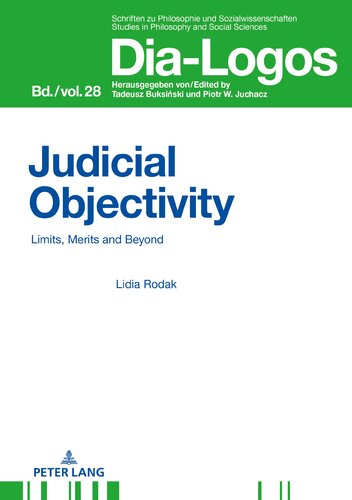

Most ebook files are in PDF format, so you can easily read them using various software such as Foxit Reader or directly on the Google Chrome browser.
Some ebook files are released by publishers in other formats such as .awz, .mobi, .epub, .fb2, etc. You may need to install specific software to read these formats on mobile/PC, such as Calibre.
Please read the tutorial at this link: https://ebookbell.com/faq
We offer FREE conversion to the popular formats you request; however, this may take some time. Therefore, right after payment, please email us, and we will try to provide the service as quickly as possible.
For some exceptional file formats or broken links (if any), please refrain from opening any disputes. Instead, email us first, and we will try to assist within a maximum of 6 hours.
EbookBell Team

0.0
0 reviewsThe book poses the fundamental question of what objectivity means in practical legal discourse and what is its role. By applying critical discourse analysis to the applications of the term “objectivity” in judicial discourse – based on cases from Poland – the book identifies a rich taxonomy of objectivity’s uses that judges make of the concept of objectivity. The main results are that objectivity has a special meaning in the legal discourse based on legal authority, and that a case can be made for a stronger interconnection between objectivity and intersubjectivity. These results challenge the theoretical foundations of the debate on objectivity in the legal discourse and open new perspectives for the justification of this concept in modern societies.